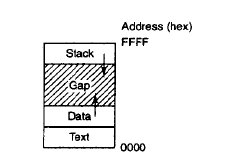What is a computer stack and how many stacks are there in computer?
Thank you in advance
Member • Aug 7, 2013
Member • Aug 7, 2013
Member • Aug 7, 2013
Member • Aug 7, 2013
Member • Aug 7, 2013

Member • Aug 7, 2013
Member • Aug 7, 2013
Member • Aug 7, 2013
Member • Aug 7, 2013
Member • Aug 8, 2013
Member • Aug 8, 2013